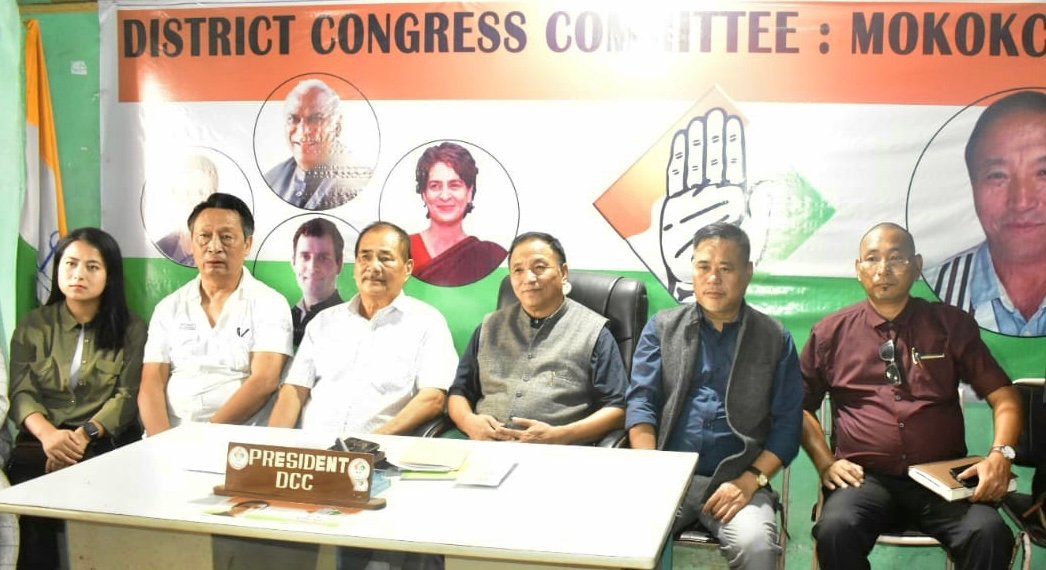The President of the Nagaland Pradesh Congress Committee (NPCC), Supongmeren Jamir, held a press conference today at the District Congress Committee Office in Mokokchung. During this address, he highlighted the party’s preparations and outlook leading up to the upcoming Lok Sabha election in the state.
Jamir emphasized that Congress is well-positioned to combat corruption and advocate for the interests of the people in the state. He stated, “We are not only fighting for the state itself but also striving to send a candidate who can truly represent our state in the parliament.”
Confident in the party’s experience gained during its 20 years in the opposition, Jamir asserted that Congress has faced numerous challenges and acquired valuable knowledge to lead the people effectively.
Download Nagaland Tribune app on Google Play

Regarding potential candidates for the ensuing Lok Sabha polls, Jamir mentioned that six individuals have approached the party’s office. However, he stressed the importance of seeking consensus with grassroots communities before proceeding. “Congress stands firmly with the grassroots, and we anticipate a positive response from the people at large,” Jamir expressed with confidence.

The NPCC president acknowledged the desire for change among the state’s residents but noted a decline in hope regarding clean elections. He called for a thorough analysis to determine whether the system, political leaders, or voters bear responsibility for this sentiment. He further emphasized the need for responsible leaders willing to sacrifice for the betterment of society.
Commenting on election expenses, Jamir claimed that candidates in the previous Nagaland Legislative Assembly election spent more than the state budget, raising concerns about the functioning of an ‘oppositionless’ government. “With 60 MLAs under one umbrella, there is a lack of advocacy for common people. They dine together, but they don’t prioritize the concerns of voters,” he alleged.
In response, the NPCC chief asserted that Congress aims to play a major role as the opposition in the state and called upon civil society, church organizations, and NGOs to unite for the people’s welfare. He cautioned against partisanship and urged these groups to adopt a rational and constructive approach to bring about positive changes despite the absence of a formal opposition in the Nagaland Legislative Assembly.

